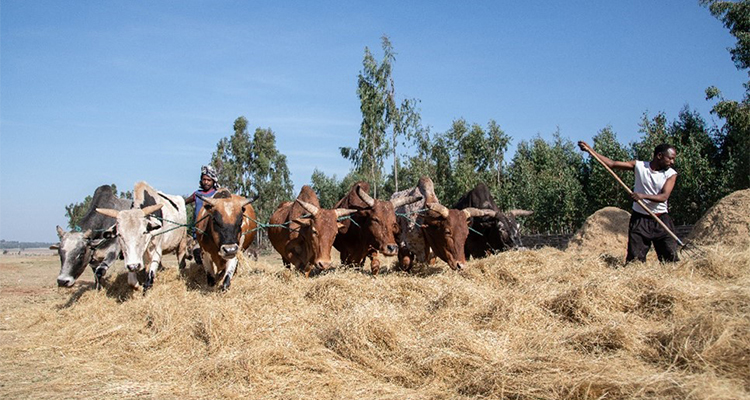
Project
Tracking climate change adaptation in livestock systems (PhD project - Lucy Njuguna)
Ambiguity in concepts, lack of appropriate tools for adaptation tracking, and scarcity of data on adaptation hinder the assessment of if adaptation is taking place and its outcomes across space and time. Therefore, the main objective of this research is to build knowledge on how to design tools that are suited for tracking adaptation across scales over extended periods.
Background
The impacts of climate change are already observed and expected to worsen, thereby stressing the importance of ambitious adaptation action, more so in the livestock sector. In relation, adaptation tracking is promoted as an iterative process of assessing if and how adaptation is taking place with the aim of showing accountability in climate action and generating insights that could be useful for advancing adaptation policymaking. The current literature has focused substantially on the challenges of adaptation tracking and has adopted a top-down and apolitical approach to develop adaptation tracking frameworks. This seemingly apolitical approach is known to be problematic and likely to limit the effectiveness of adaptation tracking in practice.
Description
Using case studies of the Eastern Africa livestock sector, Lucy will develop a critical perspective on how tools for tracking adaptation could be designed and used in cognizance of the existing systems of knowledge production and use and plurality of adaptation perspectives. To do this, she will first characterize the rules and practices of producing knowledge relevant to tracking adaptation in livestock sectors of Ethiopia, Kenya, and Uganda. She will then characterize the similarities and differences in how actors perceive dimensions that are relevant for adaptation tracking to assess the value of involving multiple actor groups in designing adaptation tracking tools. Finally, she will engage with relevant actors to co-produce frameworks for tracking adaptation in the livestock sector, paying attention to how the tools can be embedded in existing government rules and practices.